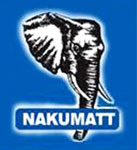Nakumatt Holdings ranked among global Top 50 family businesses

Only Nakumatt owned by the Shah family and Pick n Pay owned by the Ackerman family made it on the list from Africa.
In the listing, published in the current (Autumn 2011) edition of Campden FB (formerly Families in Business) magazine, Nakumatt has reserved a slot at position 28 in the top 50 Global Challengers list.
Ranking the companies
To rank the companies, Campden FB looked at revenue growth in local currency during the three-year period from 2008 until the end of 2010. The listing vindicates the fact that the world economy may be suffering, but many family business are growing faster than ever.
With operations in Kenya, Uganda, Rwanda and set to open in Tanzania in coming weeks, Nakumatt clocked in at position 22 a slot ahead of Belgium's Bekaert Group after managing to post a 22% revenue growth over the past two years.
Other global leaders in the Top 50 Global Challengers ranking include, British construction firm Willmott and Dixon, Danish toy manufacturer Lego, United States Clothes retailer Forever 21 among others which are ranked second, third, fourth and fifth respectively.
Others on the list
Notable leaders on the list include: American Financial Group, listed at position 19; French writing products firm Bic, listed at position 21; luxury goods manufacturer Prada, listed at position 24 and Beverage brand Campari, listed at position 26.
According to Ernst & Young's head of Family Business Centre of Excellence, Peter Englisch, family businesses have globally managed to adapt to emerging business challenges allowing them to thrive even as other corporates found the going tough.
"The advantages of family businesses are the more long term oriented strategy and the flexible governance that allows them to react more quickly to changes in the business environment," Englisch noted.
Criteria
To be included in the Campden FB list, all global businesses must have met stringent evaluation criteria. Among others, the companies must have had at least one representative of the family formally involved in the governance of the firm while listed companies needed to have met the definition of family enterprise if the person who established or acquired the firm or their families or descendants still possess at least 20% of the decision-making rights mandated by their share capital.
























